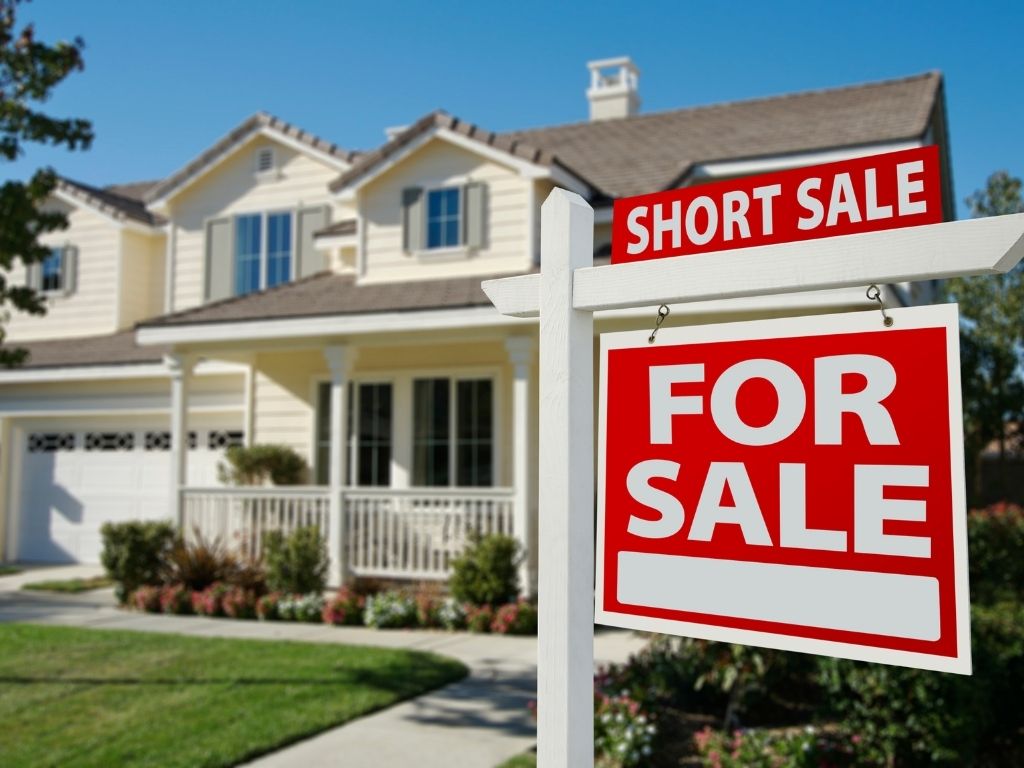If you can’t keep up with your home payments and must let the home go, you may consider a short sale. It seems like the more favorable option when letting your house go since foreclosures have such negative reputations.
But how does a short sale work?
In a short sale, you work with your lender to sell the home for less than you owe. The lender must approve the amount before you can go this route – don’t do it on your own. If the lender agrees, they may write off the remainder of what you’d owe (the difference between the sales price and the amount you owe.)
You move out of the home and may have to rent for at least a few years, but you get out of the mortgage you couldn’t afford.
This begs the question, does a short sale hurt your credit?
What Does A Short Sale Do To Your Credit?
Any negative credit event hurts your credit. Not paying your mortgage as agreed (either through the full term or the full amount after selling the home and paying the full amount) is a breach of contract.
How much a short sale hurts your credit depends on your credit when using the short sale option. Typically the higher your credit score the more a short sale hurts it. For example, if you have a 750 – 850 credit score, you could lose as much as 150 points on a short sale.
If you have ‘average’ or even ‘poor’ credit you may lose 100 points or less, which is still a huge hit to your credit score.
Fortunately, it doesn’t last forever.
How Long Will A Short Sale Affect Your Credit?
You probably know by now your credit score changes often – usually at least once a month. It may increase or decrease depending on your actions.
A short sale will hurt your credit score significantly. But, the effects last for about 2 years, and then your score may bounce back, but only if you take the right steps.
Tips To Improve Your Credit After A Short Sale
The first two years after a short sale are a critical time. If you can show you are financially responsible and want to bounce back from the short sale, your score may improve significantly in that time if you do some or all of the following:
- Make your payments on time – Your payment history is the largest part of your credit score. Try your hardest to make all payments on time. If you can’t, get in touch with your creditor immediately to work out a payment plan.
- Keep your debt balances low – Your outstanding debts compared to your credit lines is another important factor. Keep your outstanding credit at less than 30% of your credit lines for the best results.
- Don’t open new credit – Only open new credit when it’s necessary. If you have little credit open, strategically choose an unsecured credit card or personal loan. Choose something you can pay off fast and never miss a payment.
- Don’t close old accounts – It’s tempting to close old credit card accounts, but don’t. You need the ‘old credit’ to lengthen your credit age, which also affects your credit score.
Can You Buy A Home After A Short Sale?
It’s not as hard as most people think to buy a home after a short sale. If you improve your credit in the 2 years after the short sale, you should be able to buy a home shortly after the 2-year mark. You may need FHA financing or financing from a private lender, but it’s possible.
The key is to maximize your qualifying factors – improve your credit and save money for a down payment for the highest chances.
Short Sale Vs Foreclosure
If a short sale hurts your credit, you may wonder if you should just let the bank foreclose. At least you can stay in the house longer because it can take a year or longer for a bank to take possession. You would live there ‘rent-free’ too, but the consequences aren’t as favorable.
A foreclosure hurts your credit as much as a short sale, BUT, the effects last longer. Many lenders won’t give you a mortgage for at least 7 or more years. FHA loans are more lenient, but you’ll still wait at least 3 years, sometimes longer.
A foreclosure also has more negative connotations. It makes future lenders think you ‘gave up.’ With a short sale, you at least work with the lender to come up with a solution that satisfies you and the lender.
Be careful, though, depending on your state laws, a lender may come after you for the difference in the outstanding loan amount and sales price. They could place a judgment on you, which follows you forever unless you pay the balance in full.
Bottom Line
Choosing a short sale is a big decision. Look at the long-term consequences and think about what you want. To buy another house in the next few years, consider the short sale (if your lender approves).
If you think homeownership is right for you, a foreclosure may be better because you aren’t on the hook for the difference (if that’s allowed in your state). But, you won’t be able to buy a home for many years.
Look at your credit score, and your financial situation and decide the best route. Talk to your lender too – they may have other options that don’t involve losing your home. After the pandemic, many lenders still work with borrowers since so many are still struggling with their finances and secure employment.



